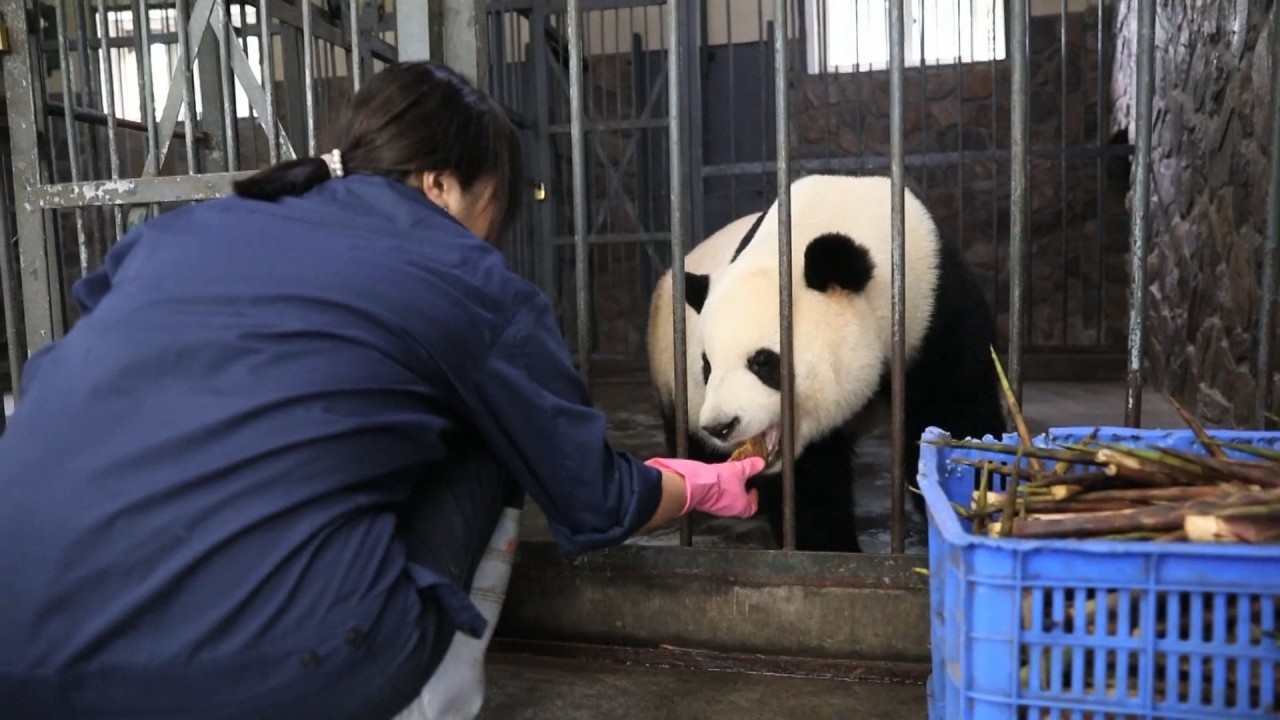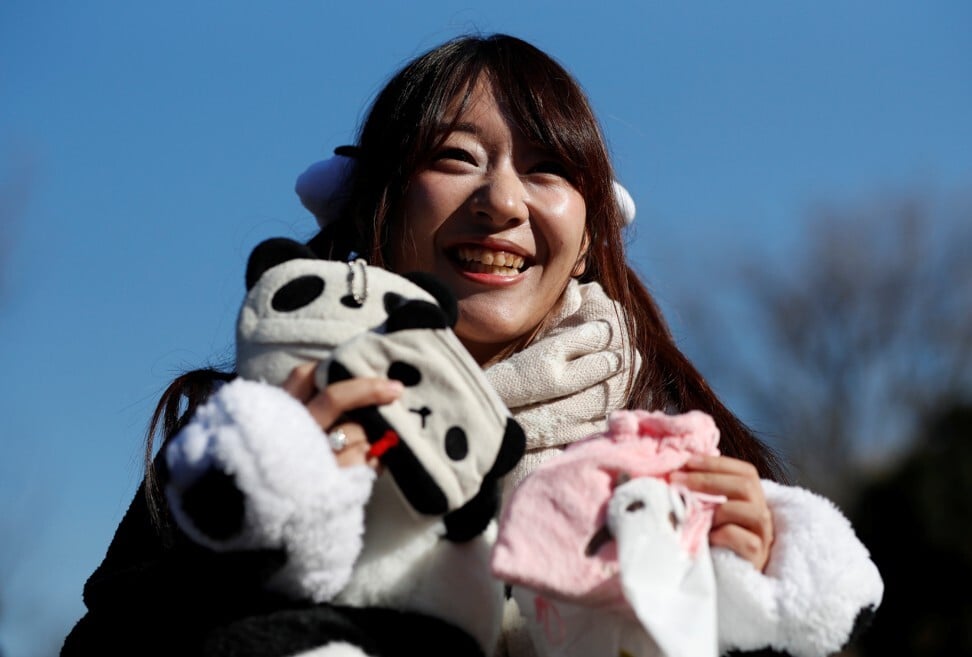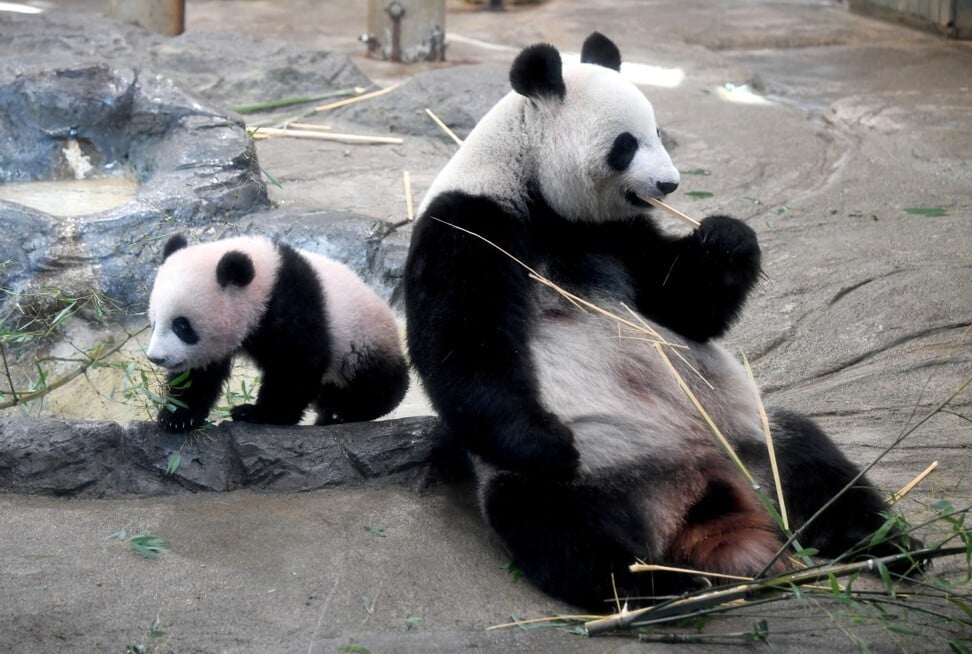
Tokyo asks China if Xiang Xiang and parents can stay, as lease of pandas ends
- Three-year-old Xiang Xiang and her parents, Ri Ri and Shin Shin, are set to leave Tokyo’s Ueno Zoo in the coming months
- Xiang Xiang’s star power is such that the zoo has a daily ticketing system that allows 6,500 people to book a slot to catch a glimpse of her
That extension runs out in December, however. That leaves her parents, Ri Ri and Shin Shin, in Tokyo, but the 10-year leases on these pandas will also run out in February, potentially leaving Tokyo’s largest zoo without its favourite attraction.
“The pandas are the most popular animals here – especially the cub,” said Kay Sato, a spokeswoman for the zoo. “We have always known that she will have to return to China this year as she is needed for breeding, but we are hoping that the adult pandas will be able to stay longer.”
A Tokyo government official said that negotiations were ongoing about extending the lease of Ri Ri and Shin Shin, both aged 15, for another five years. There was no statement on how those talks were progressing or how much such a deal would cost.
Pandas are lovable. We will proceed with negotiations with all our strength and embracing the desire of Tokyo residents
Xiang Xiang has been credited with bringing an increase in visitors to the zoo, which has had to introduce a ticketing system to reserve slots to watch her gambol around her enclosure. There is a daily limit of 6,500 people for Xiang Xiang alone, with slots typically reserved weeks in advance.
“We get quite a few people who are huge fans of the pandas and they come quite regularly, so they are very sad that she has to go in the near future,” Sato said.
If Tokyo is unable to strike a deal with China about her parents in the coming weeks, she said, it will be “very unfortunate” – particularly if the zoo is not able to secure replacement pandas.
Even Yuriko Koike, the Tokyo governor, waded into the issue, declaring at a recent press conference that her administration would do everything in its power to keep Ri Ri and Shin Shin.
“Pandas are lovable,” she said. “We will proceed with negotiations with all our strength and embracing the desire of Tokyo residents.”
Finally alone, giant pandas mate naturally for the first time
Yet there is growing unrest among the legions of panda lovers in the city.
“It’s not necessary to send them back,” said one poster on the 2-Channel online messaging site. “The coronavirus is spreading and, in my opinion, it would be nothing but trouble to send them back to China. It all depends on the discussions with Beijing.”
On Twitter, one user said: “The current situation is really tough. It would be better for Xiang Xiang to stay so she is safe and secure in a familiar environment.”
Another said: “She should not return to China, even if they insist.”
Kevin Short, a professor who specialises in environmental education at the Tokyo University of Information Sciences, said the affection that Japanese feel for pandas is not a question of their ecological or cultural importance – it’s purely a question of cuteness.
“They have those round faces with black eye patches, they’re sort of pudgy, they are always entertaining to watch, they’re clumsy and they’re funny,” he said. “Of course the Japanese are going to find them cute and irresistible.
“My wife is up in arms about them having to go back to China,” he added. “Before the pandemic limited travel, she used to go into Tokyo regularly to see the baby panda – even if the last time she had only got a brief glimpse of it before it went to sleep and her time was up.
“Now she’s pretty resentful that the baby panda – which was born here in Japan – is still considered the property of China and has to be returned,” he said.

03:02
Stuffed toy sparks animal advocacy for Japanese panda keeper in China
Tsuyoshi Shirawa, who operates Shizuoka-based Rep Japan to import and trade zoo animals, said pandas were highly sought after by zoos in Japan – but they were “impossible” to obtain without Beijing’s consent.
“It is impossible to buy a panda because they are all owned by China, which charges what they term a ‘conservation fee’ of around US$1 million a year,” he said.
“But the business is entirely political. This is an animal that is very popular, is rare and controlled by one country, so it is used by Beijing to buy political favours,” he said. “And any country that does not want to follow those rules simply has no chance of getting a panda.”




